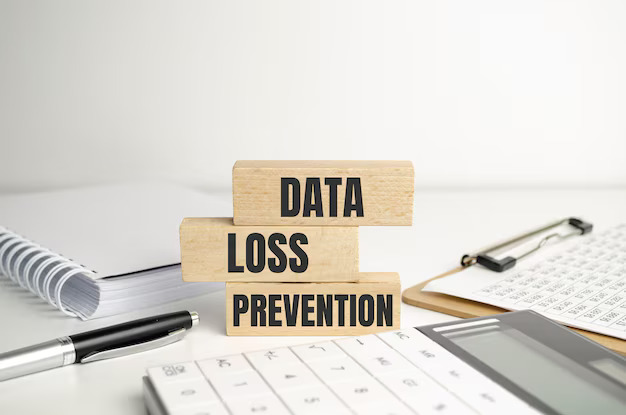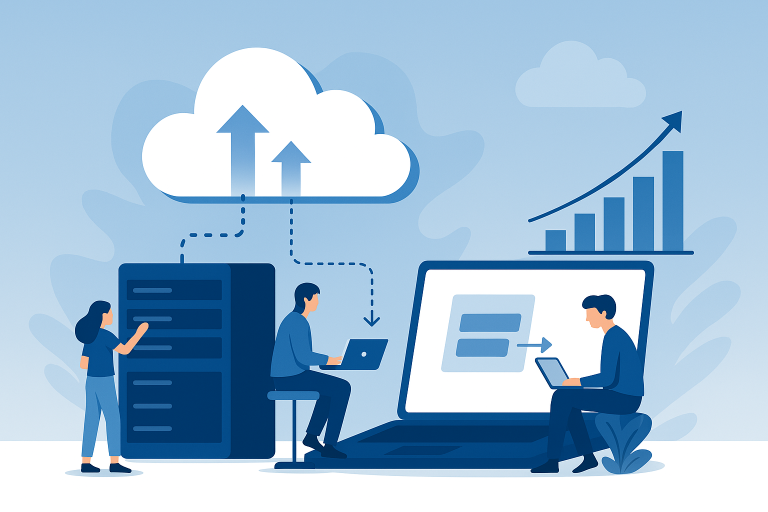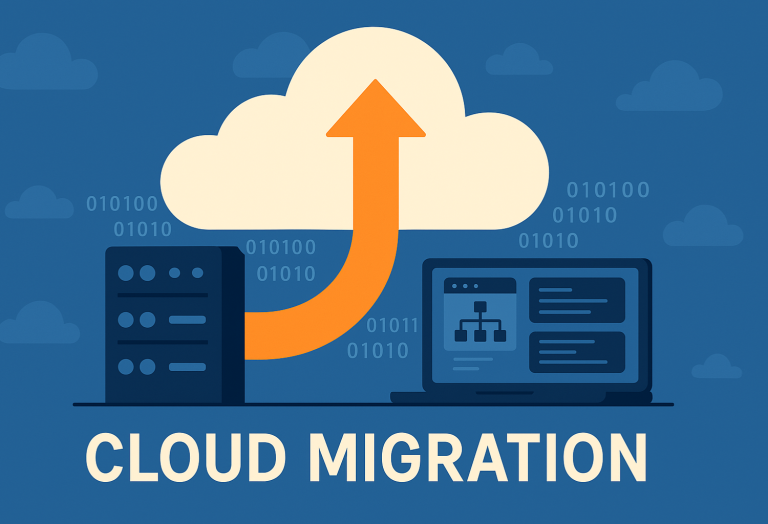
In the present era of digitalization, most companies have to hold their sensitive business data in digital format. While digital transformation has several facilities like easy storage, easy and fast accessibility, efficient searchability, etc., it also has increased the chances of data leakage or theft. Therefore, data security has become a serious concern for every organization. Implementing robust Data Loss Prevention measures is crucial to safeguard this data from potential breaches. A vulnerable security system not only fails to prevent attempts of data breaches but also allows hackers to gain access to sensitive business data.
Apart from data theft, data loss can happen in other ways as well, such as file corruption, system or hardware failure, human error, device (laptop, tablet, or smartphone) theft, and so on. So, you should be aware of every possible reason that can lead to data loss and efficient measures to stop them. This article will help you know more about how to keep your business data secure and prevent data breach attempts.
Causes of data loss
To develop an efficient data protection system, first and foremost, you need to identify the loopholes in your existing security system. Additionally, you have to understand the actual causes of data loss to protect your digital properties, such as system files and sensitive information. With that in mind, here are the main causes leading to data loss.
1. Human errors
In most cases, dishonest staff or a careless activity of staff or an unintentional mistake can lead to a data breach. Even experienced and skilled employees can make a mistake by the sophisticated online traps. Here are the common user activities leading to data loss.
Sharing private and confidential information with the wrong people
Accidental deletion of important files
Sharing sensitive data through the email
Loss or theft of crucial paperwork
Loss or theft of an unencrypted office devices
Inappropriate disposal of hardware or software containing business data
2. Device issues
Till date, hard drives are used as primary data storage for multiple companies. So, your system breaks, a hard disk crash, etc., can lead to permanent data loss. Next to human mistakes, device issues are the most common cause of data loss. Several factors, like fire or water damage, overheating, exposure to strong magnets or power surges or outages, can cause a system failure.
Some internal factors can also cause a hard drive to fail, such as software or file corruption, user error, etc. Even poor maintenance can lead to system failure much before the usual time.
3. Insufficient security practices
Incidents like viruses, spyware, ransomware, or malware attacks can lead to data loss. There are multiple ways to initiate data breaching, such as email-based attacks, phishing etc. Hackers either steal your data to blackmail you, or they can destroy or encrypt data and could infiltrate your entire system.
4. Asset theft or data theft
Present remote and flexible working culture needs portable devices like laptops, smartphones, or tablets to work from anywhere. So your office devices are no more restricted within office promises. Employees carry them everywhere, increasing the risk of asset misplacement or theft. It is a huge risk that can lead to potential data loss.
5. Power Outages
In case of natural disasters or other unforeseen circumstances, sudden power outages can lead to data loss. Additionally, a sudden power surge or outage could unexpectedly shut down a system, resulting in data loss. Moreover, a complex operating system could break without proper shutdown procedures, causing all data it holds to become corrupt or lost. For instance, a sudden thunder strike can crash your entire storage system, further exacerbating the risk of data loss.
Role of an MSP in Data loss prevention
To avoid any kind of data loss, organizations need to design a robust data loss prevention strategy. Furthermore, you can take the help of a managed IT services company to develop an efficient data protection plan. In fact, managed service providers (MSPs) can be your trusted partners to improve data security, prevent data loss, and implement a comprehensive disaster recovery strategy for your business. Below are the measures MSPs use to assist their clients effectively.
1. Develop and implement a data recovery process
A disaster recovery plan is essential for most companies to keep sensitive business data safe in every situation. A disaster recovery plan involves instructions on how to back up and encrypt data, data recovery steps in case of a data loss, security policies for all devices, and other details for data protection.
2. Develop data backup strategies
To avoid permanent data loss, backing up data is the best way. When you have an efficient and effective backup strategy, you can recover your data to minimize the impact of data loss. Whether a cyberattack, computer breakdown, natural disaster, or in-person attack — a copy of your data will be safely stored for recovery.
3. Data encryption
Encryption is an efficient way to protect digital data from malicious attacks when transmitted using the internet or other networks or stored in a device. A robust encryption protocol makes it almost impenetrable for unauthorized personnel to access sensitive business data.
4. Password protection
Password protection is essential to secure sensitive data. Instead of using a simple password, a strong password with two-factor or multifactor authentication can provide better protection to your data.
Make a company policy that employees must create a strong password using upper and lowercase letters, numbers and symbols. Instead of memorizing your keeping note of passwords, employees use a password manager for better protection.
5. Use firewall and other measures of cybersecurity
You must use firewall protection with antivirus software and malware protection. A regular antivirus software update is also essential to keep your cyber protection system up-to-date. Don’t forget to install security patches; you will get maximum security from cyber-attacks.
6. Vulnerability Assessment:
Regular vulnerability assessments through an MSP can help you identify the gaps in your security system and reinforce your existing data protection measures. Furthermore, this process will enable you to implement the necessary changes in your security system effectively.
7. Power backup
Arrange a backup power supply system to prevent sudden power outages and protect your data from loss due to improper shutdowns. A backup power supply also protects your organization from revenue loss resulting from downtime.
8. Conduct employee training
Proper employee training is vital to protect your business data. Otherwise, the best disaster recovery plan in the world could be useless without proper execution. An MSP can make your staff utterly aware of the gravity of data loss, how they could unknowingly initiate a data breach, and what safety measures to follow to avoid any data loss.
9. Restrict access
Access restriction is an effective way to reduce the chance of data theft. Ensure only authorized employees can access important company data.
Conclusion
Data security measures, along with data backup and recovery strategy, are vital to secure your company data. You can consider a managed security service provider to develop efficient data protection strategies and protect your business from data loss.

